The legacy of soil surveys
December 5, 2022
December 5 is World Soil Day. According to the UN, the purpose is to ‘focus attention on the importance of healthy soil and to advocate for the sustainable management of soil resources’. In this post, Prof Murray Lark reflects on the history of soil surveys and how they can aid our understanding and practices of …
How do we feed the world in the face of global population growth, changing demographics and climate change?
November 21, 2022
This post is written by Prof Andy Salter While the implications of, and solutions to, climate change, were discussed at COP27, two major global demographic landmarks were reached. The global population reached 8 billion and the population of India now matches that of China. These figures highlight the multifactorial challenges we face in ensuring adequate …
Improving the drought tolerance of pearl millet
November 14, 2022
Today at COP27 the focus of discussions is on water. Ensuring agricultural crops are resilient to drought, especially in the face of climate change is a huge undertaking but extremely important. Our researchers are investigating ways to make pearl millet more drought tolerant and ensure nutrient uptake. Pearl millet is a key crop that contributes significantly …
Food Systems in Small Islands and Developing States conference
October 17, 2022
This post is written by Dr Chin Chiew Foan, Associate Professor in Plant Biology, based at the University of Nottingham Malaysia. The Food Systems in Small Islands and Developing States conference 2022 (FSSIDS 2022) was held at The Everly Putrajaya Hotel, Kuala Lumpur, Malaysia from 7-9 September 2022. There were more than 50 participants from 10 countries …
Future Food PhD wins prestigious Carlos Fuentes award
September 21, 2022
Karla G. Hernandez-Aguilar, a PhD candidate with the Palaeobenchmarking Resistant Agricultural Systems project, has been awarded a Carlos Fuentes award by the Mexican Society of the UK for her PhD research. Karla’s PhD project is titled: Understanding microenvironments and the potential of traditional agricultural systems in a changing climate in Mexico and Belize. Her interdisciplinary …
Improving farmer livelihoods through better cocoa bean fermentation
November 10, 2021
We can support small farmers by using science to understand cocoa bean fermentation, ensuring more consistent beans, and better incomes, write David Salt, David Gopaulchan, and Gabriel Castrillo Cocoa is a significant global commodity, generating income, export revenues, and employment for producing countries. Cocoa is grown across the equatorial belt, by some six million smallholder …
The problem of cadmium in cocoa beans
November 2, 2021
We are identifying ways to produce safer chocolate in order to help small-holder farmers, say David Salt, David Gopaulchan and Gabriel Castrillo Cadmium is a potentially toxic heavy metal that can be found in various foods through bioaccumulation from the soil. It occurs naturally in soils (from volcanic activity, forest fires, and rock weathering), but …
RADIANT: Realising dynamic value chains for underutilised crops
October 13, 2021
Biodiversity is hugely important for the functioning of natural systems, and restoring biodiverse ecosystems is an essential part of our fight against climate change. Biodiversity is key to food, nutrition and economic security, particularly for small farmers and farming communities in rural areas. There are around 259,000 plant species on our planet, of which 50,000 …
Screening heat tolerance in rice plants – An interview with John Ferguson
November 17, 2020
Photo by marianne bos on Unsplash John Ferguson is a postdoctoral research fellow on the Palaeobenchmarking Resilient Agricultural Systems (PalaeoRAS) project Tell me about your work. What do you study? I am plant ecophysiologist. I perform experiments to understand how plants respond to environment stress. We use the results from these experiments to link variation in the plant’s responses to genetic variation. This …

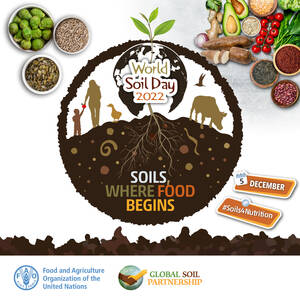

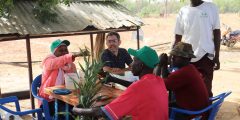
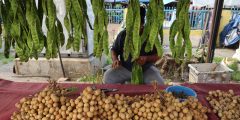
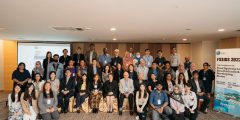

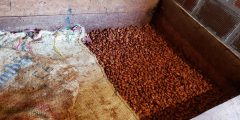
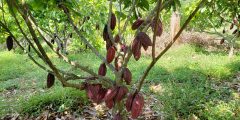
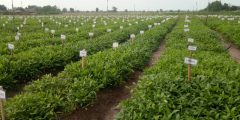
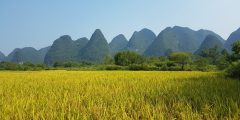
Recent Comments